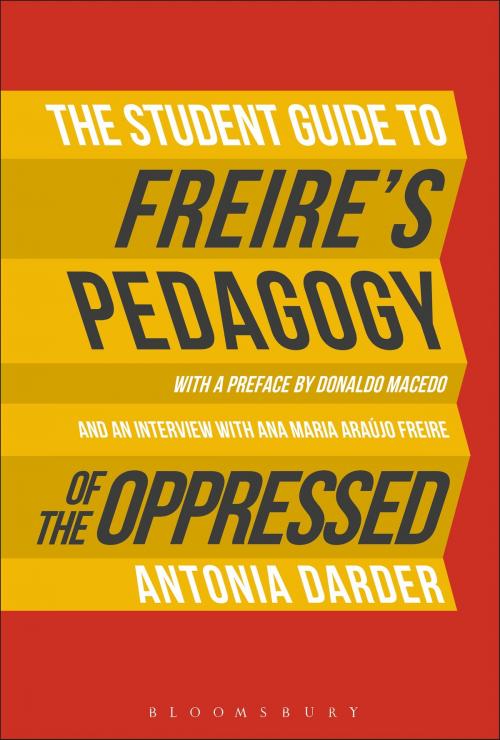The Student Guide to Freire's 'Pedagogy of the Oppressed'
Nonfiction, Reference & Language, Education & Teaching, Educational Theory, Philosophy & Social Aspects| Author: | Professor Antonia Darder | ISBN: | 9781474255639 |
| Publisher: | Bloomsbury Publishing | Publication: | March 22, 2018 |
| Imprint: | Bloomsbury Academic | Language: | English |
| Author: | Professor Antonia Darder |
| ISBN: | 9781474255639 |
| Publisher: | Bloomsbury Publishing |
| Publication: | March 22, 2018 |
| Imprint: | Bloomsbury Academic |
| Language: | English |
This book serves as an important companion to Freire's seminal work, providing powerful insights into both a philosophically sound and politically inspired understanding of Freire's book, supporting application of his pedagogy in enacting emancipatory educational programs in the world today.
Antonia Darder closely examines Freire's ideas as they are articulated in Pedagogy of the Oppressed, beginning with a historical discussion of Freire's life and a systematic discussion of the central philosophical traditions that informed his revolutionary ideas. She engages and explores Freire's fundamental themes and ideas, including the issues of humanization, the teacher/student relationship, reflection, dialogue, praxis, and his larger emancipatory vision. Questions are included throughout Chapter 3, Reading the Text Chapter-by-Chapter, to enable greater discussion of, and engagement with, the text itself. The book includes an incisive interview with Freire's widow, Ana Maria Araujo Freire. The bibliography offers invaluable support to those looking to read and study other works by Paulo Freire.
This book serves as an important companion to Freire's seminal work, providing powerful insights into both a philosophically sound and politically inspired understanding of Freire's book, supporting application of his pedagogy in enacting emancipatory educational programs in the world today.
Antonia Darder closely examines Freire's ideas as they are articulated in Pedagogy of the Oppressed, beginning with a historical discussion of Freire's life and a systematic discussion of the central philosophical traditions that informed his revolutionary ideas. She engages and explores Freire's fundamental themes and ideas, including the issues of humanization, the teacher/student relationship, reflection, dialogue, praxis, and his larger emancipatory vision. Questions are included throughout Chapter 3, Reading the Text Chapter-by-Chapter, to enable greater discussion of, and engagement with, the text itself. The book includes an incisive interview with Freire's widow, Ana Maria Araujo Freire. The bibliography offers invaluable support to those looking to read and study other works by Paulo Freire.















